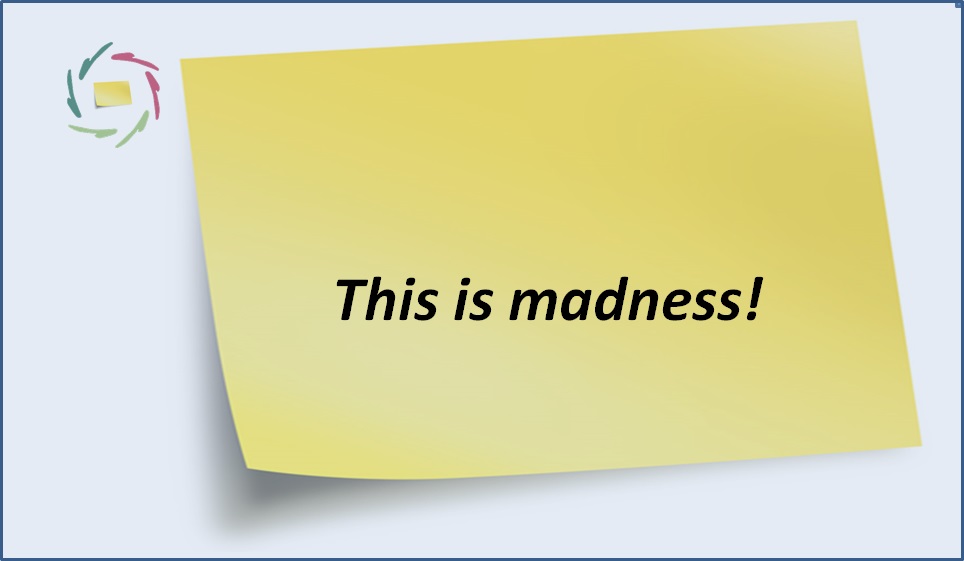Only Truth Can Truly Cure

No, I have not suddenly become the most arrogant person on Earth. I only think that science does indeed matter.
Of course, to “know the final truth” is to be deluded.
Ultimate truth may never be attainable. [see: “What is Ultimate Truth?”]
The title is rather an admonition. We can strive for truth, discarding what is clearly a fallacy.
Naturally brave
This also begs the question of what is to be regarded as ‘cure.’ Is a kind of Brave New World [see Huxley] cure something to strive for, in which everybody is happy in two dimensions, yet nobody – except the one to be cured – lives in three?
Organic nature itself lives in three dimensions (at least). Ubiquitous eternal happiness in two doesn’t accord with that. Nature wants us to be alive and meaningful rather than happy. Thus, striving for happiness in two dimensions makes nature our enemy. In three dimensions, it makes us meaningful and even happier.
We should be naturally brave. This has many implications.
Placebo is never truthful
by definition. A placebo (pill, procedure, setting, motivational talk) is what provokes something else to work (indirectly), yet is deemed to work by itself (directly). It always involves the combination of direct and indirect in a – one way or the other – deceitful manner. Meanwhile, what works easily remains invisible.
What makes it difficult to see this, generally, is our very own ‘basic cognitive illusion.’ [see: “The Basic Cognitive Illusion“] You need to take some time for this. It’s very worthwhile.
This is relevant to a range of phenomena, from voodoo, psychotherapy, and pop-psychology, to regular and alternative medicine. [see RG: “FROM “DOES IT WORK?” TO “WHAT IS ‘IT’?“]
‘Open placebo’ is a nice idea, but it doesn’t hold. [see: RG: “From Placebo to ‘Open-Label Placebo’ to Open Altogether“]
In many cases, that what works behind the placebo-screen is a human being in-depth. Starkly put, what is being ignored – taken from sight – is human meaningfulness. In my view, that’s a grave thing to do. There should be an existential reason before doing so.
In most cases, there isn’t. Placebo is cheaply taken for granted. [see: “To Placebo or Not to Placebo”] Thus, Western (and Eastern) medicine is full of placebo-phenomena. Take out the placebo, and you take out more than half of its effectiveness.
Psychotherapy, in its modeling itself to medicine, has taken the same course. [see: “Psychotherapy vs. Psychotherapies”]
That’s the culmination of non-sustainability
because placebo cannot reach the underlying layer of human meaningfulness except by manipulating, distorting, hurting, and eventually partly destroying it.
This way, people lose their Inner Strength and become dependent on even more placebo. That may be good for placebo-providers, but it’s bad for humanity. Why?
It puts us further away from the truth.
Further from the truth, we are further from ourselves as total human beings. We are further from being healed to wholeness. This engenders a lot of depression and aggression.
Lots of psychosomatic distress.
Lots of social aggression, discrimination, wars, insensitivity to human suffering on the other side of the world.
It puts us further away from Compassion.
Science brings us closer to the truth ― in many cases, and in principle. But as things are, through placebo, non-science is there, everywhere, behind the screen of also what appears scientific.
Placebo does not truly cure.
This deceit is also a reason why so few medical drugs effectively cure. Almost the whole range is symptomatic: relieving symptoms, not diseases [see: “Most drugs are sheer symptomatic”], let alone any mental causes of disease.
So, again, what do/should we see as ‘cure’? Wherever human depth is involved, shouldn’t it be involved in the cure?
I see reasons in the past (‘religious’ reasons, mainly) why human depth was ignored, and is still being ignored. I see a future in which these reasons are unacceptable.
I see a present in which they are unacceptable to me. Maybe also to you?


